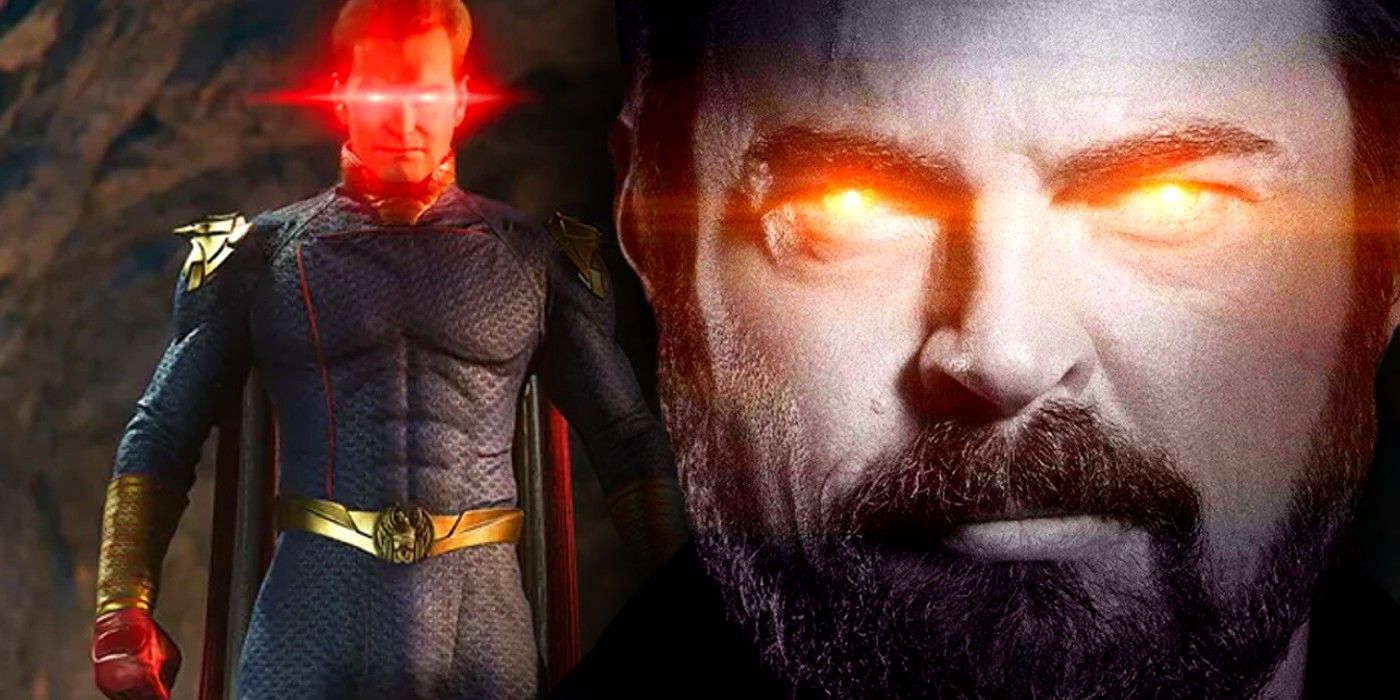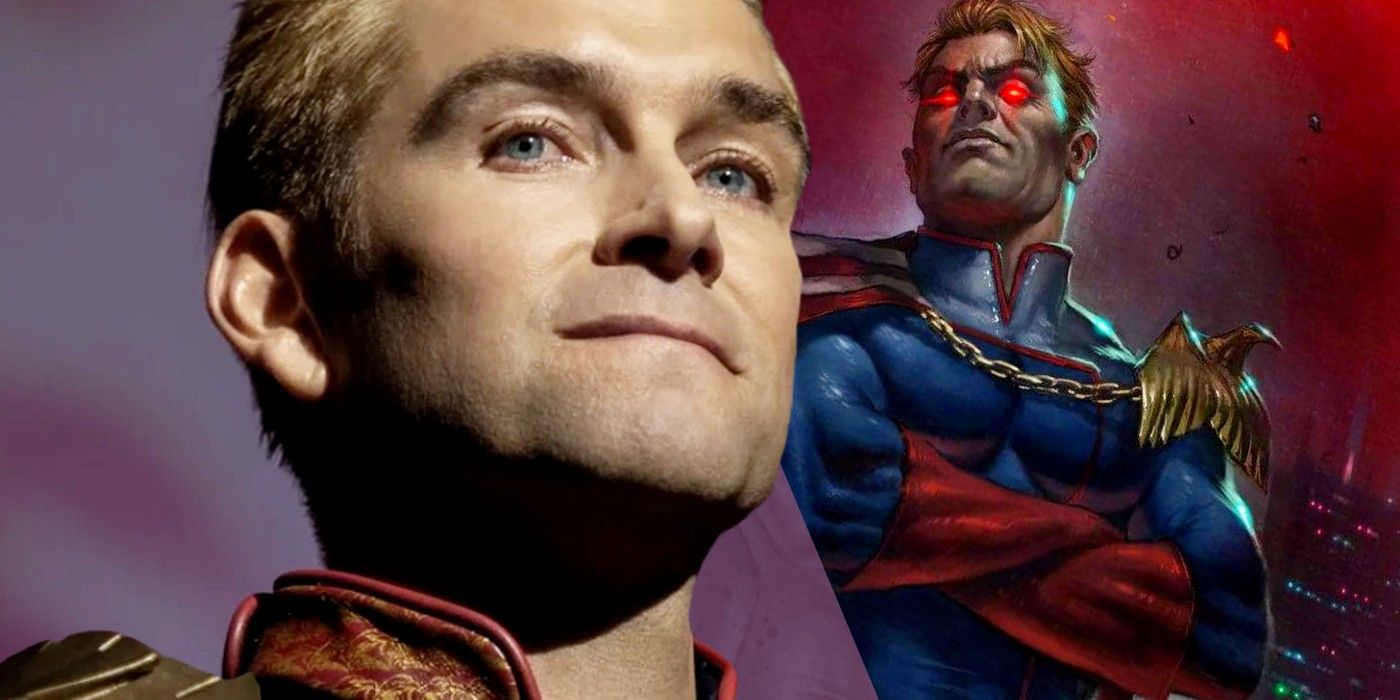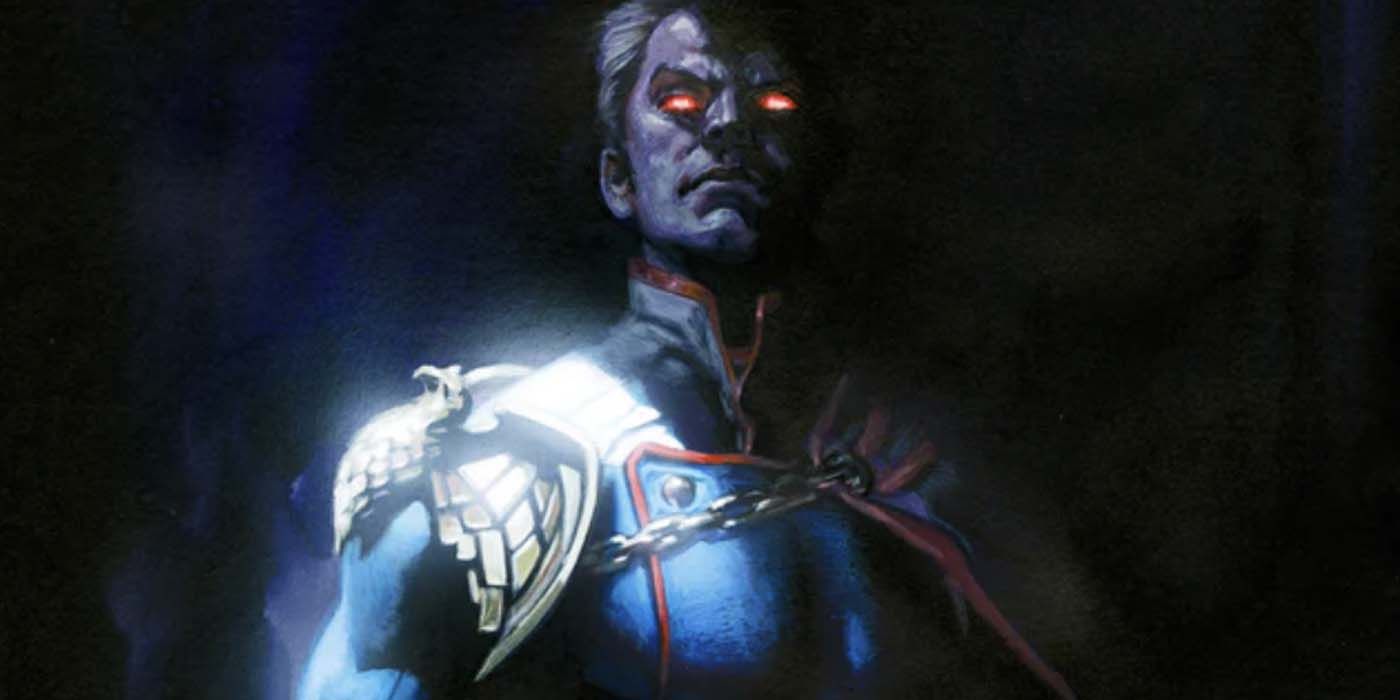Summary
- Homelander’s death in The Boys flips the concept of him as a big bad by stripping him of dignity and relevance.
- Killed by Black Noir, Homelander’s demise is an off-panel twist that challenges his self-portrayal in the story.
- The series contrasts Homelander’s anticlimactic end with the emotional, epic deaths of other characters, underscoring their humanity.
Spoilers for The Boys comic book series!While Homelander is set up throughout The Boys as the series’ big bad, his eventual death perfectly flips this concept by robbing him of his dignity and relevance. An incredibly powerful parody of DC’s Superman, Homelander is a brutal bully who ultimately decides to stage a coup on the United States, murdering the president and countless people in a short-sighted grab for power.
Homelander is eventually killed by Black Noir, who is revealed to be a clone of the powerful Supe, tasked with assassinating him should he ever decide to break from the Vought-America corporation’s interests. It’s Black Noir who ends up being the series’ biggest superhuman threat, and Homelander is killed off-panel in a way that not only acts as a thrilling twist, but perfectly undermines the way the character presents himself throughout the story.
The Boys: Every Member Of The Seven Who Lives & Dies By The End of The Series
In The Boys’ original comic not every member of The Seven lives to the ending of the story. But which supes live, who dies, and how are they killed?
Homelander accuses Black Noir of ruining his life, admitting at the end that he’s not actually in control.
Homelander Learns The Secret Role of Black Noir
The Boys #65 (from Garth Ennis, Russ Brain, John McCrea, and Keith Burns)
In The Boys #65, Black Noir steps forward to make sure that Homelander learns the truth. Not only has his ‘friend’ always wanted to kill him, but Black Noir actually dressed as Homelander in order to frame him for brutal crimes and force Vought to call for his execution. Homelander’s own crimes only happened because he believed he’d already done such terrible things, prompting Butcher to hit him with the definitive put-down, “It means you turned into a ****** psychopath by mistake.”
For most of The Boys, Homelander is held up as an unkillable terror – someone who can’t be brought down by normal means, and who plunges the country into chaos on a whim. It’s exactly how he presents himself, and yet ultimately it’s the lie of someone who has the maturity of a teenager.
It’s a brilliant ending for Homelander, taking a character who desired to be seen as a supreme evil and killing him off-panel in a fight against an even bigger threat.
Homelander is Killed By Black Noir, Off-Panel
Homelander’s Death Is the Series’ Most Anticlimactic Moment
Homelander begins the issue sitting in the Oval Office, feeling unbeatable, and ends with a profanity-laden tantrum, squaring off against an enemy who brutally destroys him. It’s a brilliant ending for Homelander, taking a character who desired to be seen as a supreme evil and killing him off-panel in a fight against an even bigger threat. And even better, doing it moments after definitively proving Homelander never understood what was actually going on behind the scenes.
2:56

“The Worst Idea in History”: The Boys’ Creator Hates His Original Idea for Butcher’s Powers (That Would Have Ruined Homelander)
Garth Ennis called his original idea for the Boys’ powers “the worst idea in history” – but there’s a reason it was part of the franchise’s pitch.
Homelander’s coup is deeply unsuccessful, lasting less than a day and ending with him murdered by Vought’s secret weapon and his superhero ‘army’ mowed down by the military. What’s more, Homelander is finally forced to confront the horror of his actions. While he’d convinced himself that he was a psychopath and played the role, Black Noir’s reveal exposes his weakness and malleability. Homelander accuses Black Noir of ruining his life, admitting at the end that he’s not actually in control.
In contrast to Homelander, each of the Boys gets a momentous, tear-jerking death to underscore their humanity and importance…
Homelander’s Death Contrasts Those of The Boys
Mother’s Milk, Frenchie, the Female and Butcher Get Truly Epic Final Moments
By the end of The Boys, only Hughie is left alive, and yet Homelander can’t claim any credit. In fact, following Homelander and Black Noir’s defeat, it’s Butcher who kills his team, believing they’d prevent him from carrying out his grand plan to slaughter everyone with Compound V in their system. The team’s deaths are tear-jerking – Frenchie and the Female acknowledge their deep platonic love, Mother’s Milk and Butcher have a bitter fight to the death, and Butcher ultimately goads Hughie into killing him so that he won’t have to live the rest of his life in prison.
While the series’ storytelling isn’t perfect when it comes to the Boys – Mother’s Milk’s family life is left on an unsatisfying note of tragedy – each of their deaths is a momentous, epic sign-off underscoring their personalities and connections to others. In this light, Homelander’s death is even more perfect, as The Boys contrasts his off-screen demise with the emotional ends of its heroes.
Often in pop culture, even the most repulsive villains are given iconic deaths that validate their importance. The Boys doesn’t give Homelander that kind of ending…

The Boys’ Ending Shows Why There’ll Never Be Another Homelander
The final defeat of Homelander doesn’t necessarily mean Supes are done for good, but Hughie reveals the CIA will never allow a superhero comeback.
Homelander’s TV Show Death Shouldn’t Be Epic, Either
It’s Important That The Boys Doesn’t Buy into Homelander’s Hype
In spite of the Amazon series and its deviations from the comics (such as the twist with Black Noir), The Boys needs to give Homelander a similarly uneventful death as well. Having gained massive amounts of fame and popularity even as his true colors have begun to show, the version played by Antony Starr feels just as invincible by the end of The Boys season 3, thinking he can do no wrong. As such, the show could and should give Homelander an equally uninspiring demise, cutting right at the heart of his psychopathic self-importance. With so many feeding into his lies and narrative, giving him an anti-climatic death is the perfect way to defeat not just Homelander, but also his problematic followers.
Ultimately, Homelander isn’t even in the top three of The Boys‘ villains, ranking below Black Noir, Vought executive James Stillwell, and Billy Butcher himself. While he sets himself up as a terrifying threat, his death in The Boys pulls the rug from under his and readers’ feet by showing he’s anything but. Often in pop culture, even the most repulsive villains are given cool or iconic deaths that only serve to validate their importance. The Boys doesn’t give Homelander that kind of ending, revealing he’s been playing someone else’s game all along, and killing him off in a fight that only serves to establish his killer as a far more disturbing and significant villain.
Source link

